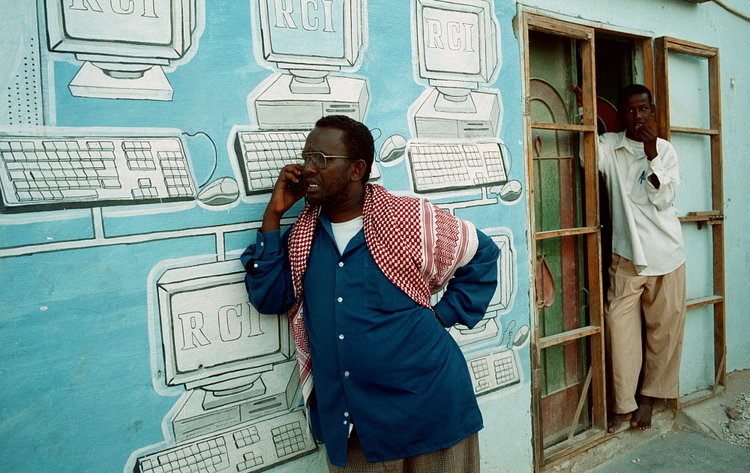By: Mariéme Jamme
Send to a friend
The details you provide on this page will not be used to send unsolicited email, and will not be sold to a 3rd party. See privacy policy.
Technological innovation is booming. It is also failing to produce profitable companies, says Mariéme Jamme.
I recently sat in a meeting in Amsterdam, the Netherlands, where the future of African libraries was being discussed. I came out troubled by the numerous challenges that places of learning in Africa are facing, and could face in the future, if nothing radical is done.
A few people at the meeting predicted what needs to happen to enhance the role of libraries in building knowledge for development. But they had little understanding of the ecosystem of problems that first need to be overcome, for example by creating adequate national and regional policies to support such a role.
For starters, most African libraries are poorly equipped with new technologies and investment in them is almost nonexistent — not to mention the lack of collaboration among libraries, associations with an interest in libraries, universities and communities including women’s groups.
Places of learning in Africa are now also being threatened in other ways, such as libraries in Mali being burned by Islamic fundamentalist rebels.
It’s therefore clear that people are struggling to gain and spread knowledge safely and securely. But at the same time, technology spaces — such as labs and research and development centres — are growing and teeming with people hungry to learn and make their mark. Knowledge seekers are creating places where they can learn, share and invent, and set up businesses.
Creativity from the grass roots
This isn’t confined to elite learning spaces such as universities, and private schools and colleges. In the last five years, I have seen a range of creations from the African grass roots. For example, in Uganda women are developing technological solutions for corporate clients and in Malawi they are teaching young girls how to code and opening creative spaces.
“The growth of mobile technologies and internet access is now the backbone of any knowledge economy — we must learn that the more information we share, the more people will benefit.”
Mariéme Jamme
Innovative ideas such as Sooretul, a website selling local juices from Senegal to Uganda, and InstaHealth, which offers technological solutions to help the poorest get instant access to public services in a country where many lack internet connections, are revolutionising and redefining the continent’s future in many ways.
As a result of such initiatives, and although millions of young adults have no access to formal education in Africa, recent indicators show a growth in technology and innovation in many African countries. [1]
What does this mean for Africa and its knowledge economy?
Promotion ahead of results
Africa is going through an economic transition, becoming a knowledge-based economy for many young African entrepreneurs who have plenty of ideas and can think for themselves. But the continent still faces many challenges in building economies around the products of technological entrepreneurship.
Some of the challenges that apply to the technology business ecosystem also apply to many programmes such as innovation awards and competitions that aim to support and highlight entrepreneurs or start-ups.
Such efforts to back African enterprise are surely well-intentioned, but their promotional goals have left many entrepreneurs frustrated. Some have won prizes, travelled across the globe to put Africa on the map, got their pictures taken for the fancy websites of Western organisations that are seeking to show their penetration into or presence in the Africa market somehow — but failed to produce any credible results or profitable companies.
Programmes aiming to find the next Steve Jobs or Bill Gates have also failed to send the right messages: they come to Africa with ideas of what will work without thinking locally; and, despite the promises and efforts of many organisations, they have not scaled up profitably.
Innovations fall by the wayside
Most of these efforts are missing a clear business strategy, exit plan and framework for who the potential beneficiaries should be. Entrepreneurs simply need business education: someone to look into the early stages of their idea effectively and realistically. By failing to look at scalability and feasibility, many solid innovations have failed to become profitable.
Other business skills are also needed to create and boost our knowledge economy. The ability to learn effectively is one; the willingness to share information is another.
Beyond business skills, there is another challenge: to fill the gap between creativity and knowledge technical skills through STEAM (science, technology, engineering, art and mathematics) subjects.
Investment is also required for the entrepreneurs to scale up their businesses.
The growth of mobile technologies and internet access is now the backbone of any knowledge economy, from Dakar to Madagascar. Capitalising on this will require a little humility in knowing that sharing and collaborating are our currencies — we must learn that the more information we share, the more people will benefit.
This year, when we celebrate the end of the Millennium Development Goals and the start of a new development agenda through the Sustainable Development Goals, Africa has a chance to create a unique knowledge economy based on all these inventions. And it needs to have a say in how to do this — Africa can no longer be absent in the conversation about its own development. We want to have our say!
Mariéme Jamme is a Senegalese-born, UK-based CEO, blogger, technologist and social entrepreneur. She can be contacted through her website.
This opinion was commissioned to accompany a live, two-hour online debate on Africa’s knowledge economy that SciDev.Net is hosting on 24 April from 1300 to 1500 British Summer Time (GMT+1). The debate, staged in conjunction with the Planet Earth Institute, will explore some of the myths, risks and rhetoric surrounding Africa’s knowledge economy.
References
[1] Global information technology report 2013 (World Economic Forum, 2013)














